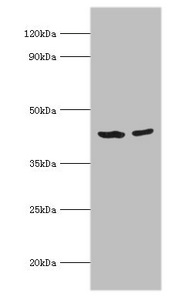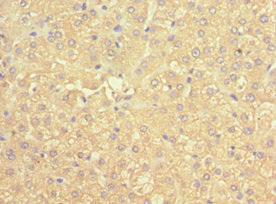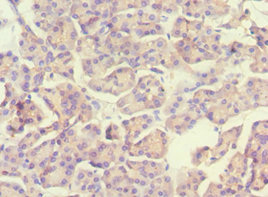Full Product Name
Rabbit anti-Homo sapiens (Human) ACADS Polyclonal antibody
Alternative Names
ACAD3 antibody; ACADS antibody; ACADS_HUMAN antibody; Acyl Coenzyme A dehydrogenase; C2 to C3 short chain antibody; Acyl-CoA dehydrogenase; C2 to C3 short chain antibody; Acyl-CoA dehydrogenase; short chain antibody; Acyl-Coenzyme A dehydrogenase; short chain antibody; AI196007 antibody; Bcd-1 antibody; Bcd1 antibody; Butyryl CoA dehydrogenase antibody; Butyryl-CoA dehydrogenase antibody; EC 1.3.99.2 antibody; mitochondrial antibody; SCAD antibody; Short chain acyl CoA dehydrogenase antibody; Short-chain specific acyl-CoA dehydrogenase antibody; Short-chain specific acyl-CoA dehydrogenase; mitochondrial antibody; Unsaturated acyl CoA reductase antibody
Immunogen
Recombinant Human Short-chain specific acyl-CoA dehydrogenase, mitochondrial protein (1-260AA)
Immunogen Species
Homo sapiens (Human)
Purification Method
Antigen Affinity Purified
Concentration
It differs from different batches. Please contact us to confirm it.
Buffer
PBS with 0.02% sodium azide, 50% glycerol, pH7.3.
Tested Applications
ELISA, WB, IHC
Recommended Dilution
| Application |
Recommended Dilution |
| WB |
1:500-1:1000 |
| IHC |
1:20-1:200 |
Storage
Upon receipt, store at -20°C or -80°C. Avoid repeated freeze.
Lead Time
Basically, we can dispatch the products out in 1-3 working days after receiving your orders. Delivery time maybe differs from different purchasing way or location, please kindly consult your local distributors for specific delivery time.
Usage
For Research Use Only. Not for use in diagnostic or therapeutic procedures.








